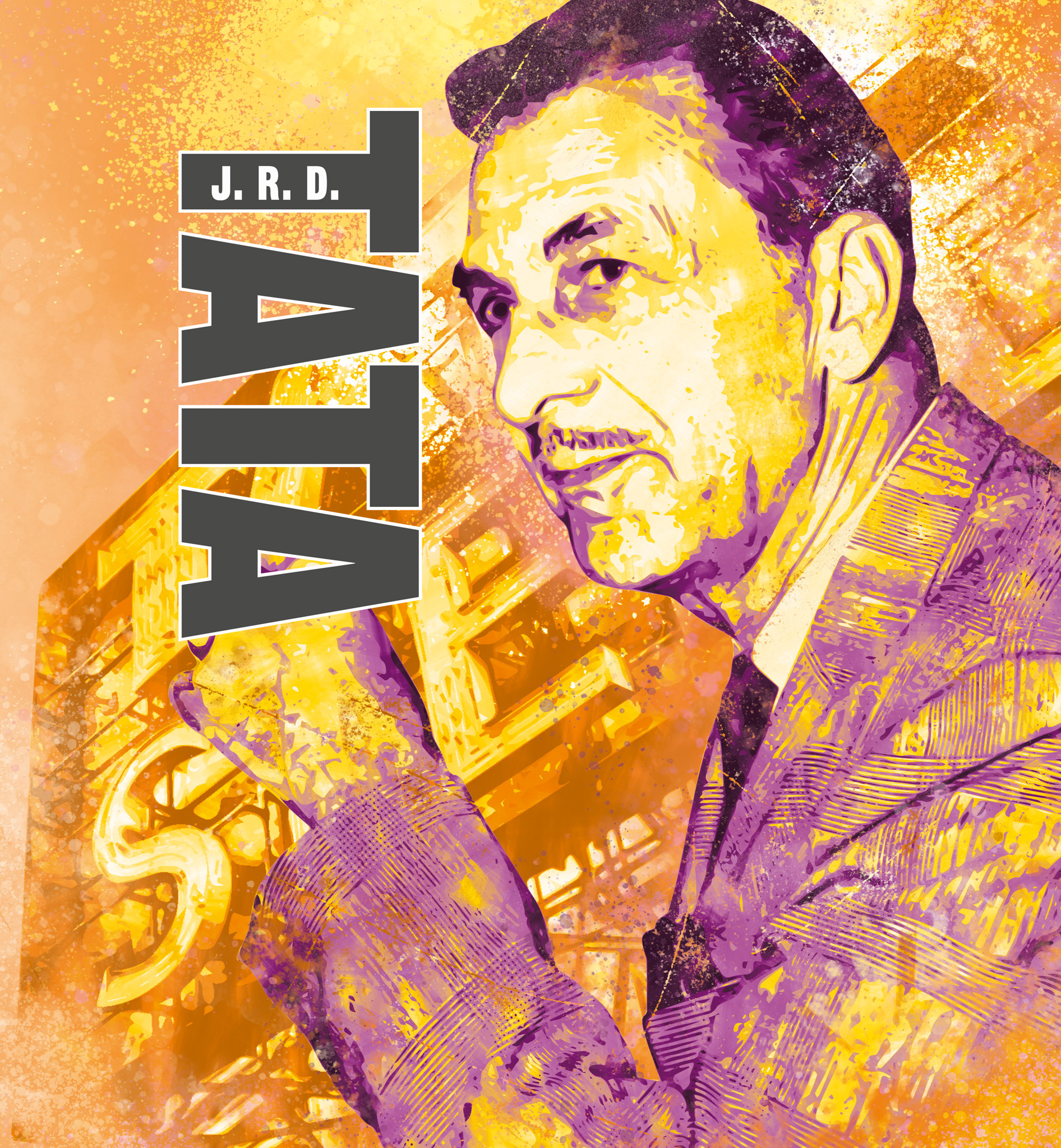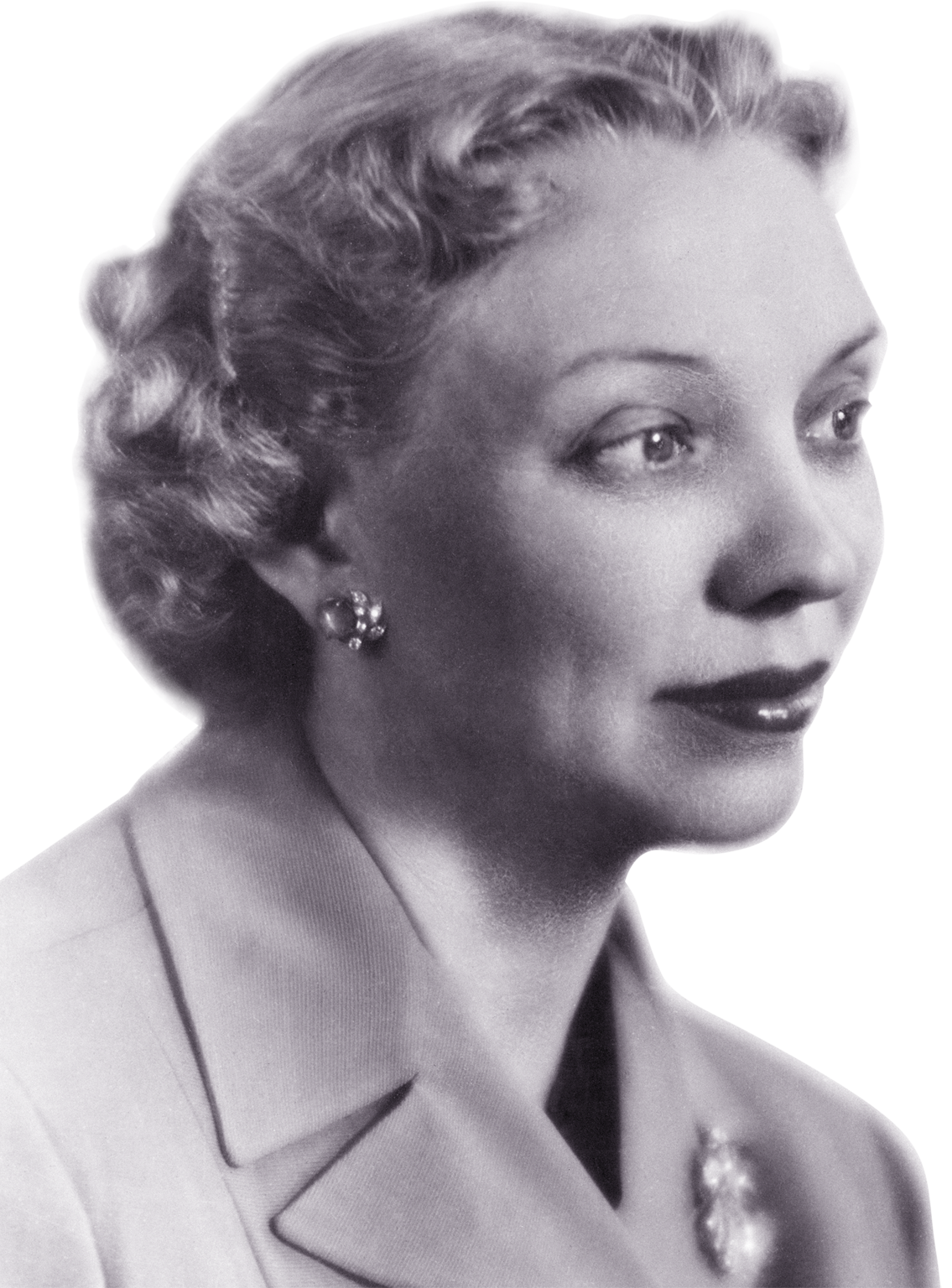
J. R. D. TATA
1904–1993
An Indian businessman and aviation pioneer, J. R. D. Tata started India’s first airline and founded many of the Tata companies that today form the Tata Group—India’s largest conglomerate and a global success story. Socially conscious, Tata also did much to further India’s medical, cultural, and scientific interests.
Jehangir Ratanji Dadabhoy Tata was born in Paris to a French mother and an Indian father. He studied in France, Japan, and the UK, where he had hoped to attend Cambridge University to study engineering. In 1925, however, as a French citizen, he was drafted into the French Army for one year of mandatory service. Afterward, his hopes of returning to education ended when tradition compelled him to join the Tata family business in India, which his great-grandfather had started in 1868.
India and business were unfamiliar to him, but he fulfilled his obligation, starting in the company as an unpaid apprentice in December 1925 at the age of 21. Less than a year later, on the death of his father, Tata was appointed to the board of Tata Sons, the group’s flagship company. By 1929, Tata had decided to surrender his French citizenship and fully embrace his life in India.
Leading with aviation
Tata had a keen interest in the fledgling aviation industry, having watched the early flights of famous aviator Louis Bleriot as a child in France. In 1929, he became one of the first Indians to be granted a commercial pilot’s license, and three years later, he set up Tata Air Services. This courier service connected Karachi, Ahmadabad, Bombay (now Mumbai), and Madras (now Chennai), and Tata piloted the first flight from Karachi to Bombay. Rebranded as Tata Airlines, later Air India, the service was India’s first domestic carrier and was run by Tata until 1977 despite being nationalized by Nehru’s government in 1953.
The airline was his passion, but Tata also devoted energy to diversifying the family business. In 1938, despite being the youngest member of the Tata Sons board, he became group chairman. The Tata Group was already the largest industrial corporation in India at the time, but Tata drove a period of further expansion. By the 1970s, he had added to the group a chemical production plant, the Tata Engineering and Locomotive Company (later renamed Tata Motors), software and technology services, a cosmetics firm, and a tea business.
“If you want excellence, you must aim at perfection.”
J. R. D. Tata, 1981
New business style

Indian tradition expected family companies to be run by family members, but Tata broke with this practice. He turned the Tata Group into a business federation where entrepreneurial talent and expertise were encouraged across the conglomerate’s various enterprises.
He also became famous for succeeding in business while maintaining high ethical standards. Corruption was rife in Indian commerce, but Tata was unusual in refusing to bribe politicians for contracts or connections. In addition, the welfare of his employees was extremely important to him. He encouraged a close relationship between workers and management and championed an eight-hour working day, free medical aid, a workers’ pension fund, and an accident compensation program.
Tata was showered with honors in India, much to his bemusement, but despite his high public profile, he was said to be shy and self-effacing. He believed that casual charity was not the solution to India’s struggle with poverty but that building the country’s scientific and economic capacities was. To this end, he set up numerous institutions, including a hospital, two science institutes, and a national center for the performing arts.
He also held the view that India needed to stem its growing population and helped to start what became the International Institute of Population Studies. In his later years, he gave much of his wealth to start the J.R.D. Tata Trust for charitable purposes. In 1991, when he stepped down from Tata Sons aged 87, the group was generating more than $4 billion in annual revenue. He died two years later in Geneva.

Tata piloted Tata Air Services’ inaugural Puss Moth flight in 1932. In 1948, he was also on board the airline’s first international flight, operating under the new name Air India.
“Never start with diffidence. Always start with confidence.”
J. R. D. Tata, 1982
OLIVE ANN BEECH

A pioneer in the American aerospace business, Olive Ann Beech was the cofounder, president, and chairwoman of the Beech Aircraft Corporation.
Born Olive Ann Mellor, Beech (1903–1993) was said to have been precocious from an early age. After attending business school, she worked as a secretary in a company making small aircraft and learned the details of aircraft design. There she met her future husband, aircraft engineer Walter Beech. The couple set up Beech Aircraft Company in 1932. When her husband died in 1950, Beech ran the business. She earned many awards and honorary appointments and is considered by many to be the First Lady of aviation, even though she never flew a plane.
MILESTONES
DISCOVERS AVIATION
Falls in love with flying as a child in France watching Louis Bleriot; takes his first flight aged 15 in 1919.
JOINS FAMILY FIRM
Becomes an unpaid apprentice at Tata in 1925; is appointed to the company board in 1926.
TAKES TO THE SKIES
In 1932, Tata Air Services begins flying passengers and mail between Karachi, Mumbai, and Chennai.
GLOBAL EXPANSION
Diversifies Tata Group from 1938 into hotels, automobiles, steel production, tea, and IT.
